Is hydrogen the fuel of the future?
That’s the question on many of trucking’s inquiring minds today. The North American Council for Freight Efficiency is doing its best to uncover some answers.
NACFE's second report on the future of hydrogen found that its future as a long-haul fuel is bright, but many fundamental issues still must be worked out.
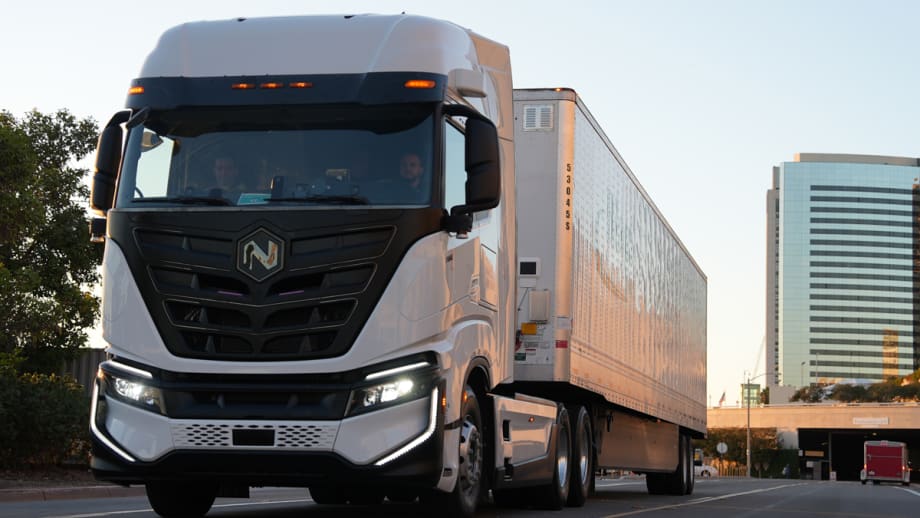
Whether as a liquified fuel in an international combustion engine, or in a fuel cell-powered tractor like the Nikola Tre, NACFE believes hydrogen will likely be the preferred clean fuel of choice for future long-haul freight fleets.
Photo: Nikola
Is hydrogen the fuel of the future?
That’s the question on many of trucking’s inquiring minds today. The North American Council for Freight Efficiency is doing its best to uncover some answers.
During an online press conference held on April 4, Mike Roeth, NACFE’s executive director, and analysists Rick Mihelic and Kevin Otto, released the organization’s second report on the future of hydrogen in trucking – building on a first report issued in 2020.
The report, “Hydrogen Trucks: Long Haul’s Future?," focuses on using hydrogen-based powertrains for Class 8 long-haul freight routes pulling van trailers. These powertrains include a range of fuel-cell battery-electric types and internal combustion engines (ICE) based on the diesel cycle. The new report is based on two previous NACFE reports — “Viable Class 7/8 Electric, Hybrid and Alternative Fuel Tractors” and "Making Sense of Heavy-Duty Hydrogen Fuel Cell Tractors" — which compared a range of alternative-fuel heavy-duty truck technologies including hydrogen.
“We got some things right in our first report,” Roeth said. “And we missed a few things – most notably the rise of hydrogen as a fuel in diesel-style, internal combustion engines. But the overall story here is that hydrogen will not be a solution to every duty cycle that is out there. Rather, it is part of the spectrum of duty cycles that diesel does today. And we believe that means that hydrogen will likely be primary future fuel for heavy duty, long-range, freight-carrying vehicles."
Rick Mihelic, report author and NACFE's director of emerging technologies said that in the long run there will only be two choices to power zero-emissions freight: battery electric and hydrogen fuel cell.
The NACFE study team determined that hydrogen is a complex topic and hydrogen for use in freight transportation is just in its infancy.
The report contains the followingconclusions:
Hydrogen and battery electric are not an “either/or” but an “and” for the zero-emission freight future.
Hydrogen fuel-cell tractors are the only zero-emission solution for many duty cycles for heavy-duty tractors.
Alternative fuels like renewable natural gas, renewable diesel, and hydrogen used in internal combustion engines will be required to support the transition in the next two decades to help make progress toward zero-emission goals, while in parallel ramping up the hydrogen and battery-electric infrastructure and manufacturing base.
“We used battery-electric trucks as the baseline for evaluating hydrogen as a fuel," Mihelic said. "But it has to be noted that battery-electric trucks aren’t ideal for really long-haul applications with heavy loads.”
As with trucking today, Mihelic said he believes optimizing specs will be critical for fleets looking to use hydrogen propulsion for trucks, whether in a fuel cell arrangement or in an otherwise conventional ICE.
“One of the appealing things about hydrogen ICEs is that they primarily look a lot like the engines fleets currently buy,” he added. “So, it may be less of a leap of imagination for fleets to move to hydrogen ICEs before moving on to hydrogen fuel-cell trucks. Although, there are certain duty applications where we believe fleets will want hydrogen ICEs – offroad vehicles and emergency vehicles, for example, are particularly well-suited to hydrogen ICEs.”
NACFE Electrification Technical Lead Kevin Otto added: “From an efficiency point of view, hydrogen ICEs are not going to match hydrogen fuel cells in terms of consumption of hydrogen. On the other hand, ICEs will certainly be quite a bit easier on the powertrains in the vehicles – basically using the same kinds of transmissions, rear ends and other components.”
Roeth, Mihelic and Otto all cautioned that while there is currently a lot of discussion around how hydrogen is produced today, the conversation really needs to focus on how hydrogen will be transported and distributed as a vehicle fuel in the future.
Roeth noted that industry agreement is needed on whether hydrogen long-haul fuel-cell tractors and the transport of the hydrogen fuel itself, will be based on gaseous or liquid hydrogen.
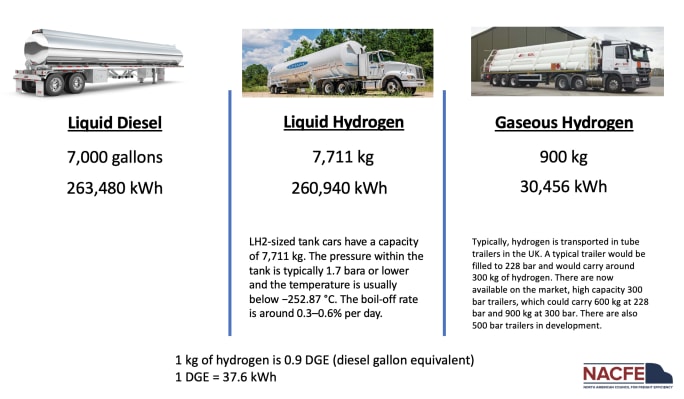
Transporting liquid hydrogen and gaseous hydrogen is a fundamental problem trucking will have to resolve as its role as a vehicle fuel grows.
Graphic: NACFE
“For instance, if you transport liquid hydrogen in a tanker trailer, it’s basically the same amount as you’d have if you were carrying diesel fuel,” Roeth noted. “But if you’re transporting compressed hydrogen gas, then you’re looking at many more trucks and trailers required to move the same amount of fuel. So, these are the kinds of basic industry issues that will have to be worked out.”
Roeth called out these key findings in the report:
Hydrogen powered freight is required for a zero-emission freight future.
There is a significant amount of funding going toward establishing the basis for a hydrogen economy that includes long-haul freight transportation.
The cost of hydrogen production, transportation, storage and dispensing will not be cost competitive with diesel without significant assistance from tax credits and other subsidy mechanisms.
Managing the actual retail cost of hydrogen is perhaps more important than continuing discussion of reducing the production cost at the hydrogen plant.
Hydrogen is closely tied to electricity. You can’t have hydrogen without significant amounts of electricity.
Hydrogen is a significant factor in federal, state and local planning and regulations for the zero-emission freight future.
Purpose-built hydrogen trucks optimized for specific duty cycles may not be valued well in the secondary market, leading to first owners keeping the vehicle until it is salvaged.
Hydrogen costs decrease as the scale of the hydrogen plants increase. Large production requires multiple industries to increase demand for hydrogen. Trucking alone is insufficient to reach demand scale needed to justify large hydrogen plants.
Hydrogen used for creating alternative fuels like renewable diesel will reduce net emissions but at the cost of delaying adoption of zero-emission alternatives.
All the answers do not need to be known on day one of hydrogen. Production supply and market demand will evolve in lock step over time. Innovators will find market opportunities where there is an oversupply of hydrogen, creating new market demand.
Hydrogen and electricity supply are inherently resilient as there are multiple methods of producing them, leading to competitive forces mitigating price and supply volatility.
“Battery electric vehicles will inherently be the most economical and efficient choice for shorter distance zero-emission duty cycles, and hydrogen will be the only viable economic choice for long-haul zero-emission duty cycles," Roeth added. "Ultimately fleets in the market will make decisions on which technology succeeds for which duty cycles.”

6 intelligent dashcam tactics to improve safety and boost ROI
Read More →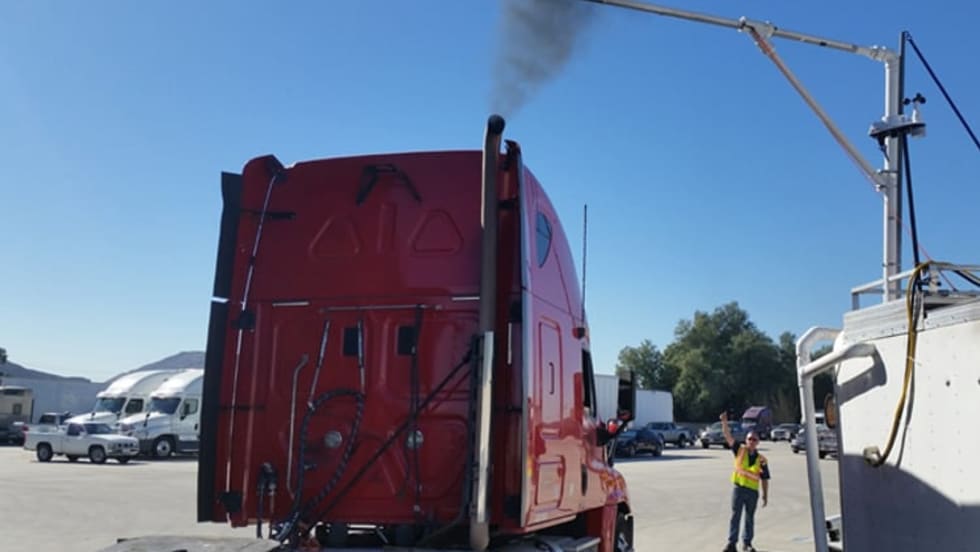
The Environmental Protection Agency said California can’t enforce its Heavy-Duty Inspection and Maintenance Regulation, known as Clean Truck Check, on vehicles registered outside the state. But California said it will keep enforcing the rule.
Read More →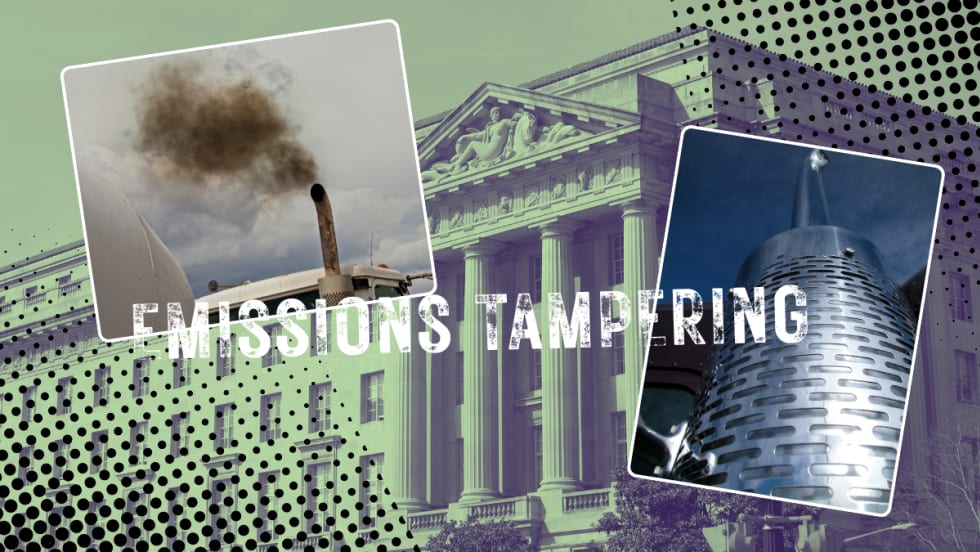
The Trump administration has announced it will no longer criminally prosecute “diesel delete” cases of truck owners altering emissions systems in violation of EPA regulations. What does that mean for heavy-duty fleets?
Read More →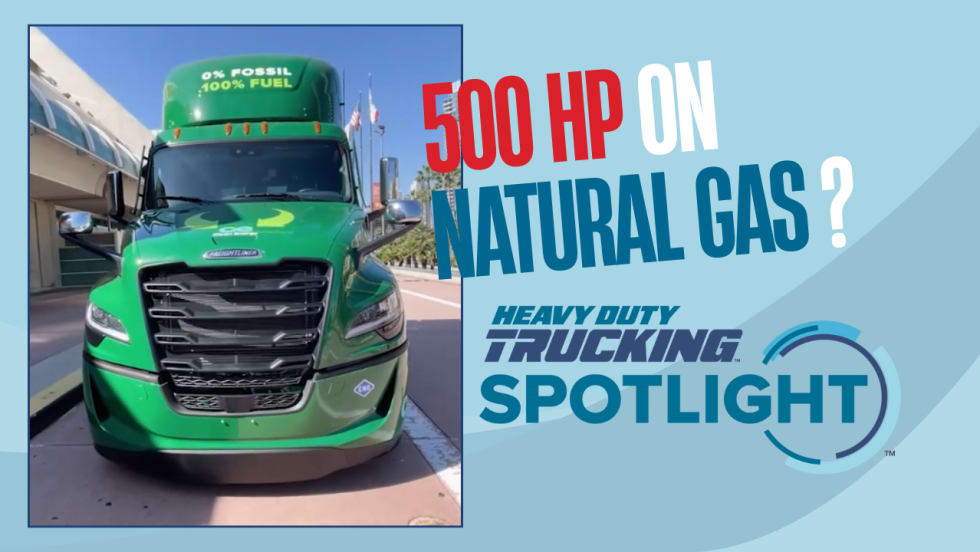
Natural gas is quietly building a reputation as a clean, affordable, and reliable alternative fuel for long-haul trucks. And Ian MacDonald with Hexagon Agility says the Cummins X15N is a big reason why.
Read More →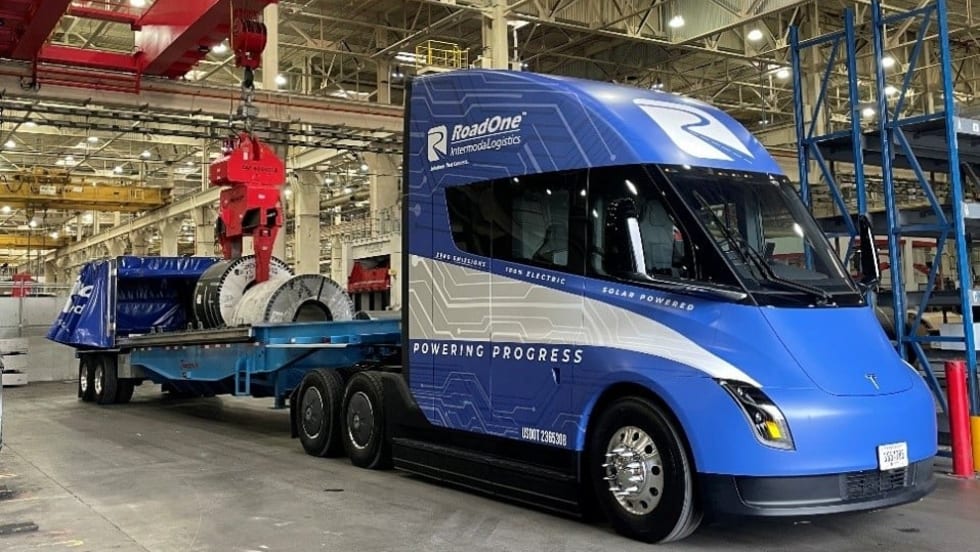
RoadOne IntermodaLogistics has bought a fully electric Tesla Semi heavy-duty truck, the first of up to 10 for its Oakland, California, operations.
Read More →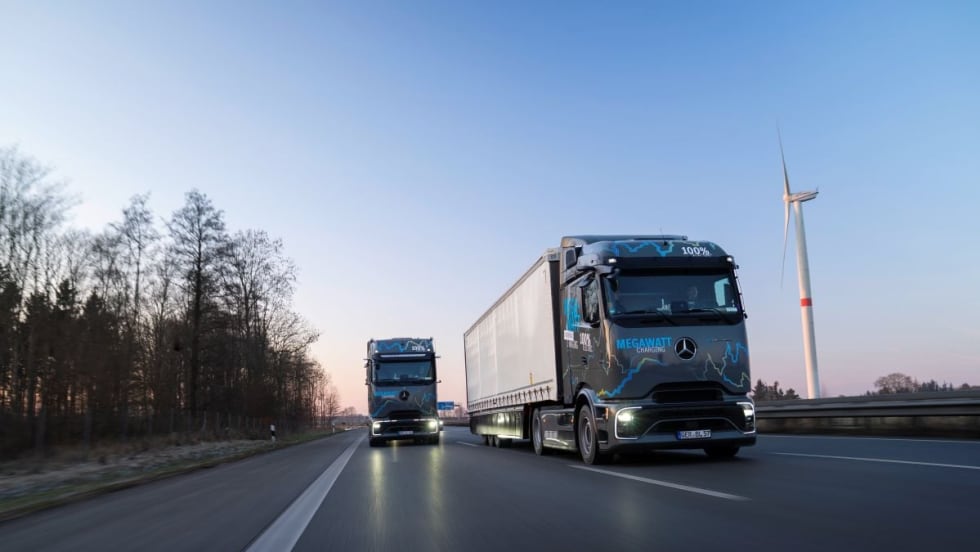
Mercedes-Benz has begun a new series of tests in Europe to validate vehicle compatibility with megawatt chargers and assess charging performance, thermal management, and usability on long-haul duty routes.
Read More →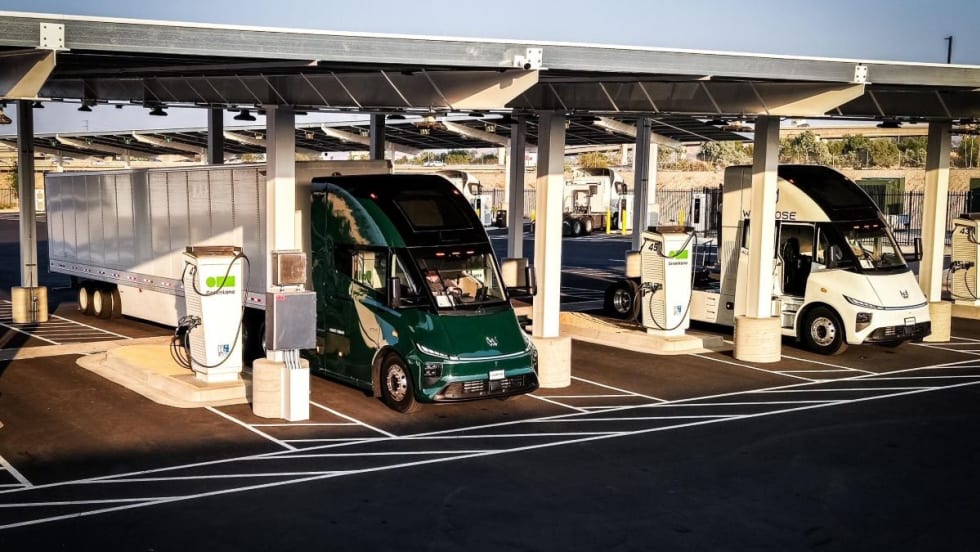
Windrose customers will receive unlimited charging for three months on Greenlane’s high-power charging network.
Read More →
Safety, uptime, and insurance costs directly impact profitability. This eBook looks at how fleet software is evolving to deliver real ROI through proactive maintenance, AI-powered video telematics, and real-time driver coaching. Learn how fleets are reducing crashes, defending claims, and using integrated data to make smarter operational decisions.
Read More →
Fleet software is getting more sophisticated and effective than ever, tying big data models together to transform maintenance, safety, and the value of your existing tech stack. Fleet technology upgrades are undoubtedly an investment, but updated technology can offer a much higher return. Read how upgrading your fleet technology can increase the return on your investment.
Read More →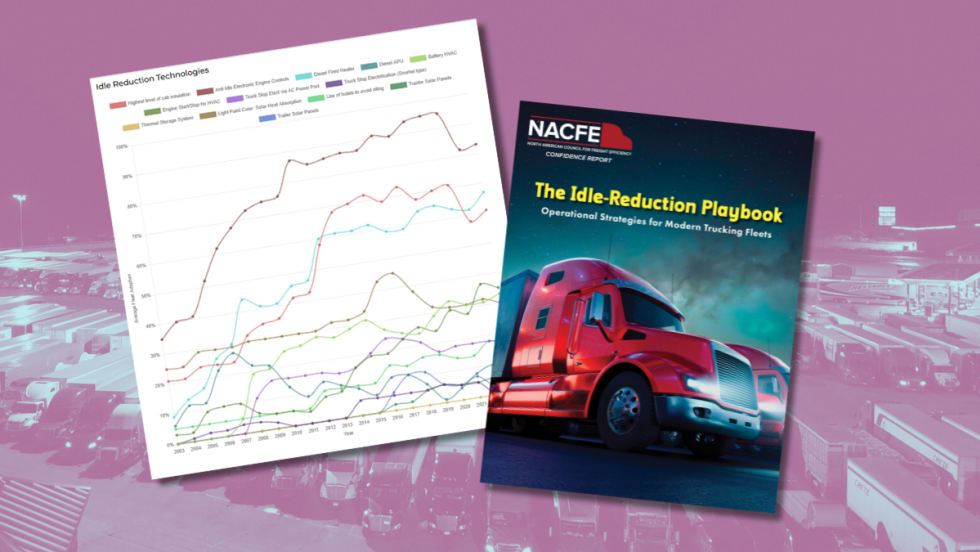
Idle reduction for heavy-duty trucks has come a long way. An updated playbook from the North American Council for Freight Efficiency explains what technologies deliver results today — and what’s coming next.
Read More →